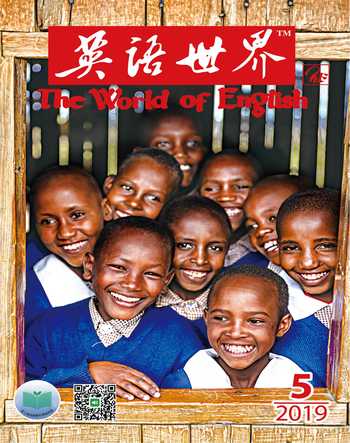What Is Poverty?何为贫穷
邓梦寒
Poverty is about not having enough money to meet basic needs including food, clothing and shelter. However, poverty is more, much more than just not having enough money.
The World Bank Organization describes poverty in this way:
“Poverty is hunger. Poverty is lack of shelter. Poverty is being sick and not being able to see a doctor. Poverty is not having access to school and not knowing how to read. Poverty is not having a job, is fear for the future, living one day at a time.
Poverty has many faces, changing from place to place and across time, and has been described in many ways. Most often, poverty is a situation people want to escape. So poverty is a call to action—for the poor and the wealthy alike—a call to change the world so that many more may have enough to eat, adequate shelter, access to education and health, protection from violence, and a voice in what happens in their communities.”
In addition to a lack of money, poverty is about not being able to participate in recreational activities; not being able to send children on a day trip with their schoolmates or to a birthday party; not being able to pay for medications for an illness. These are all costs of being poor. Those people who are barely able to pay for food and shelter simply can’t consider these other expenses. When people are excluded within a society, when they are not well educated and when they have a higher incidence of illness, there are negative consequences for society. We all pay the price for poverty. The increased cost on the health system, the justice system and other systems that provide supports to those living in poverty has an impact on our economy.
While much progress has been made in measuring and analyzing poverty, the World Bank Organization is doing more work to identify indicators for the other dimensions of poverty. This work includes identifying social indicators to track education, health, access to services, vulnerability, and social exclusion.
There is no one cause of poverty, and the results of it are different in every case. Poverty varies considerably depending on the situation. Feeling poor in Canada is different from living in poverty in Russia or Zimbabwe. The differences between rich and poor within the borders of a country can also be great.
Despite the many definitions, one thing is certain; poverty is a complex societal issue. No matter how poverty is defined, it can be agreed that it is an issue that requires everyone’s attention. It is important that all members of our society work together to provide the opportunities for all our members to reach their full potential. It helps all of us to help one another.
貧穷是没有足够的钱来满足衣食住等生活基本需要,然而,贫穷远不止是没有足够的钱。
世界银行这样描述贫穷:
“贫穷是食不果腹,是无处可居,是病不能医,是学无所教,是目不识丁,是无以为生,是恐惧未来、得过且过。
贫穷具有多面性,因时而异、因地而异,其界定也各不相同。通常而言,贫穷是所有人想要摆脱的一种状态。因此,脱贫是行动号召,号召穷人和富人一道去改变世界,从而让更多的人饮食无忧、住有所居、学有所教、病有所医、远离暴力,并且在社区有发言权。
除了缺钱,贫穷还意味着不能参与娱乐活动,不能送孩子去和同学们参加一日游或生日聚会,生病了不能支付医药费。这些都是贫穷的代价。食不果腹、无处可居的人根本无暇顾及这些其他方面的花销。如果人们被社会排斥,没有受到良好教育,更常患病,就会给社会带来负面影响。贫穷让我们所有人都付出代价。助贫的医疗、司法和其他社会体系开支将增加,进而影响经济发展。
世界银行在衡量和分析贫穷问题方面取得了诸多进展,目前正致力于鉴别贫穷其他层面的指标。这项工作包括确定各项社会指标来跟踪教育、医疗、服务、弱势群体以及社会排斥情况等。
贫穷的原因不一而足。不同个例的结果不尽相同。不同情境下的贫穷也各不相同。在加拿大感受到的贫穷和在俄罗斯或津巴布韦感受到的是不一样的。即使在同一个国家,贫穷和富裕的差别也很大。
尽管贫穷的定义繁多,但有一点是肯定的:贫穷是一个复杂的社会问题。不论如何定义,贫穷问题都需要每个人关注。重要的是,我们所有人共同努力让每个人都有机会充分发挥自己的潜能。互相帮助方能互惠共赢。
(译者单位:上海交通大学)

